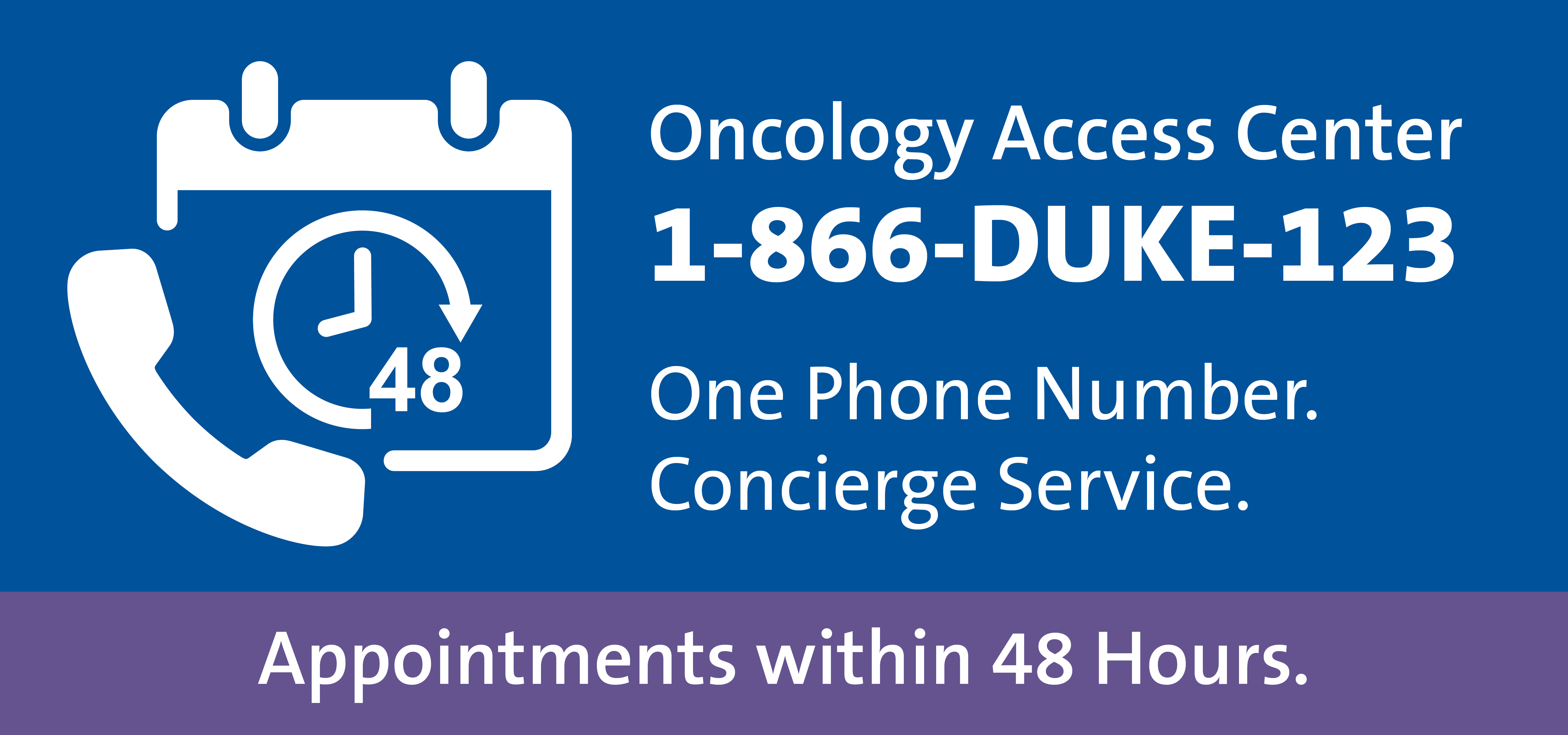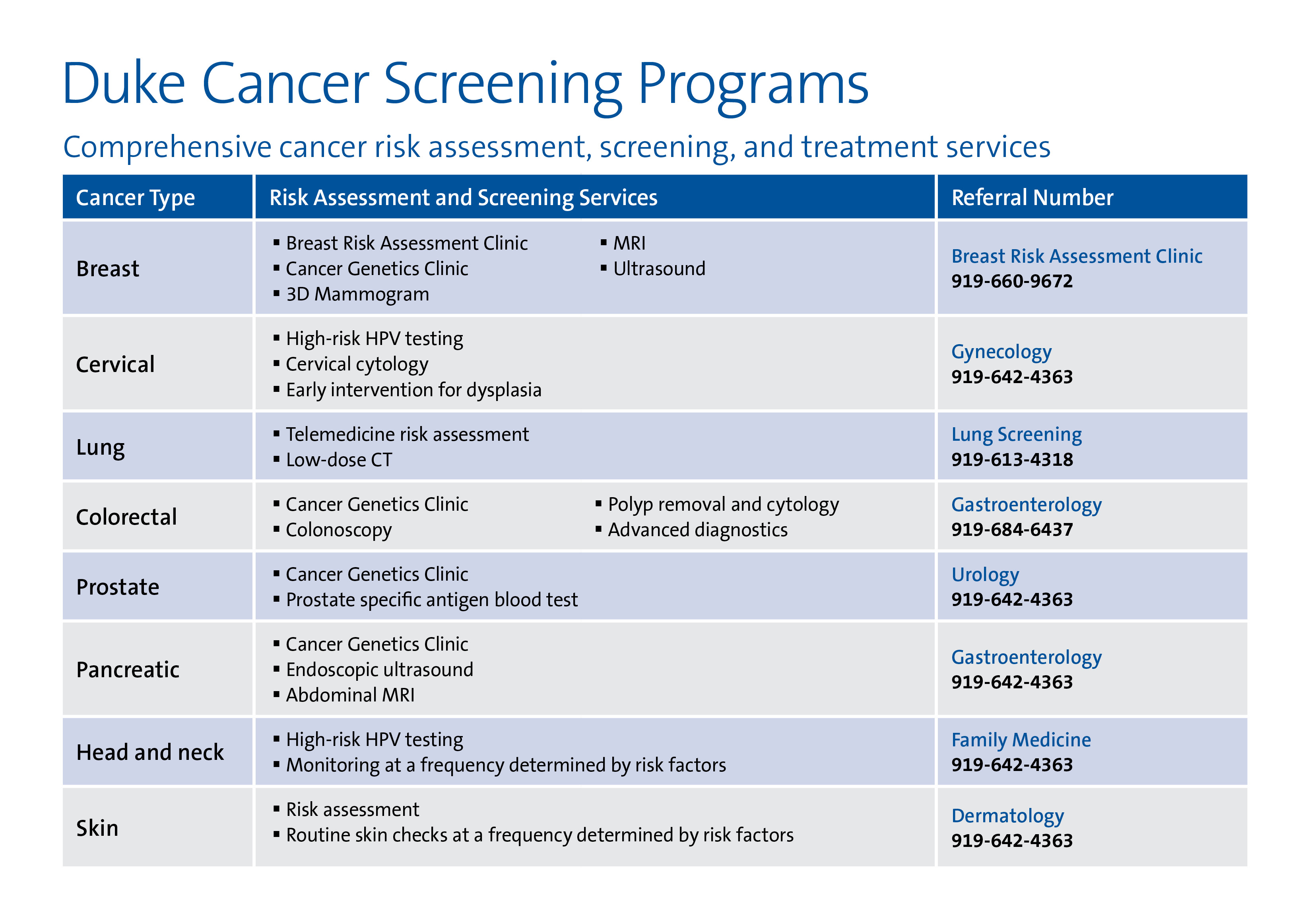General cancer screening recommendations — and their value in saving millions of lives — hinge upon providing patients with the most accurate and appropriate cancer risk assessments. The primary outcome of proper risk calculation and screening is detecting, diagnosing, and treating cancer with the earliest intervention to achieve the best possible outcomes and long-term survival.

Our referring provider team makes referring patients to Duke Cancer Centers efficient and easy. Call Monday through Friday, between 8 a.m. and 4:30 p.m.
You can also email OncologyReferral@Duke.edu or use the referral form below.
To refer a patient to the Cancer Genetics Clinic, call 919-684-3181.
Genetic testing to assess cancer risk
Duke’s Cancer Genetics Clinic provides comprehensive risk assessments for dozens of hereditary cancer syndromes, including breast and ovarian cancer (including the BRCA1 and BRCA2 gene mutations), pancreatic cancer, prostate cancer, and colon cancer.
Genetic counselors collaborate with oncologists to interpret results and guide patients to make informed, personalized cancer screening plans. Patients are also notified of changes in their genetic risk profile as cancer genome research evolves.
Comprehensive screening services
Screenings aim to detect cancer before signs and symptoms emerge. They offer the most benefits when completed at a frequency recommended by a physician based on the most up-to-date evidence-based risk factors. But where patients receive cancer screenings matters.
Duke’s comprehensive screening programs are integrated within primary and subspecialty care pathways to the Duke Cancer Institute (DCI). Referring patients to Duke connects them to world-class genetic testing, diagnostics, and multidisciplinary experts among all cancer types. Patients receive the best possible chance to detect cancer in its earliest stage, and, if needed, an expedited pathway to diagnosis and treatment through the Cancer Diagnostic Clinic.

